The Independent's journalism is supported by our readers. When you purchase through links on our site, we may earn commission. Why trust us?
9 best kettlebells for building strength and fitness at home, tested by our expert
Whether you’re looking for a budget beginner option or a competition kettlebell, there’s something for everyone here
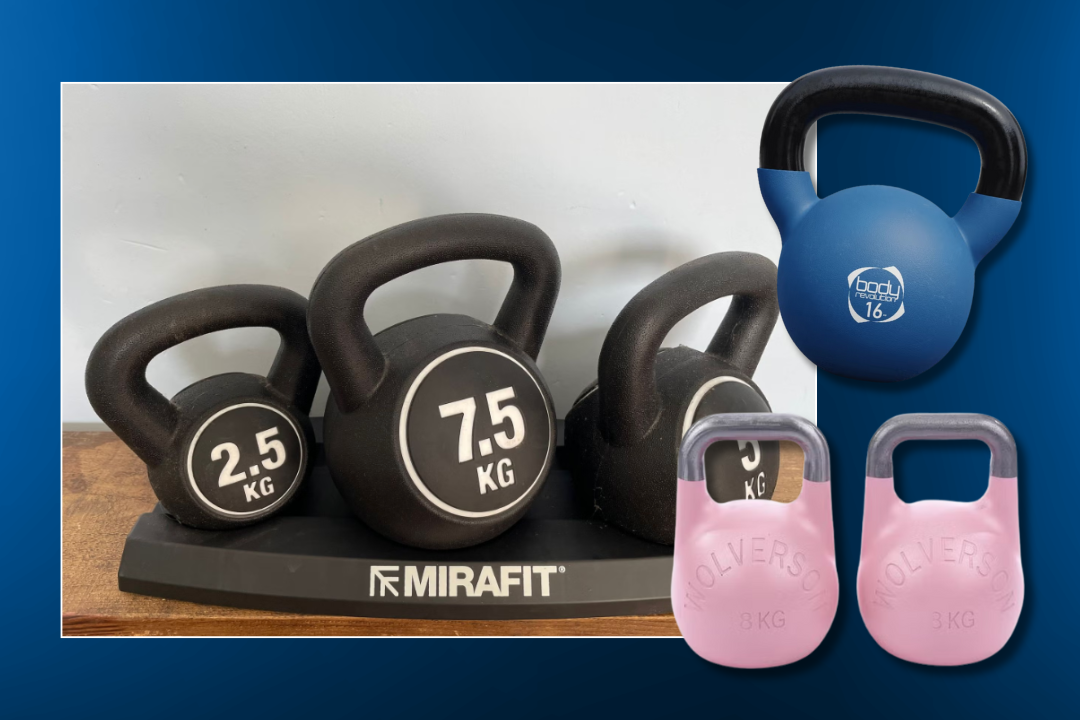
If I could only use one piece of fitness kit for the rest of my life, it would be the kettlebell. Why? Because its versatility knows no bounds, and it’s incredibly effective at making you faster, fitter and stronger.
“You can stick a kettlebell in the corner of any room in your house and you have a whole gym,” legendary strength coach and kettlebell specialist Dan John tells me. “You can get your cardio work done, your mobility work done, your flexibility work done and increase your strength. It’s a one-stop shop for training.”
Newcomers to strength training can see incredible progress with just three beginner kettlebell exercises – the swing, the goblet squat and the Turkish get-up – while advanced lifters might build explosive moves like cleans and snatches into a challenging complex. Whatever your level, to see impressive results, all you need to do is get your hands on a kettlebell or two – that’s where I can help.
I’ve tested a selection of the best kettlebells on the market, from cast iron customers to competition-ready ‘bells and tech-heavy digital options, all in the name of helping you find one that fits your needs. Below, you can find a list of my favourites, and a brief breakdown of the perfect prospective buyer for each one.
Why you can trust IndyBest reviews
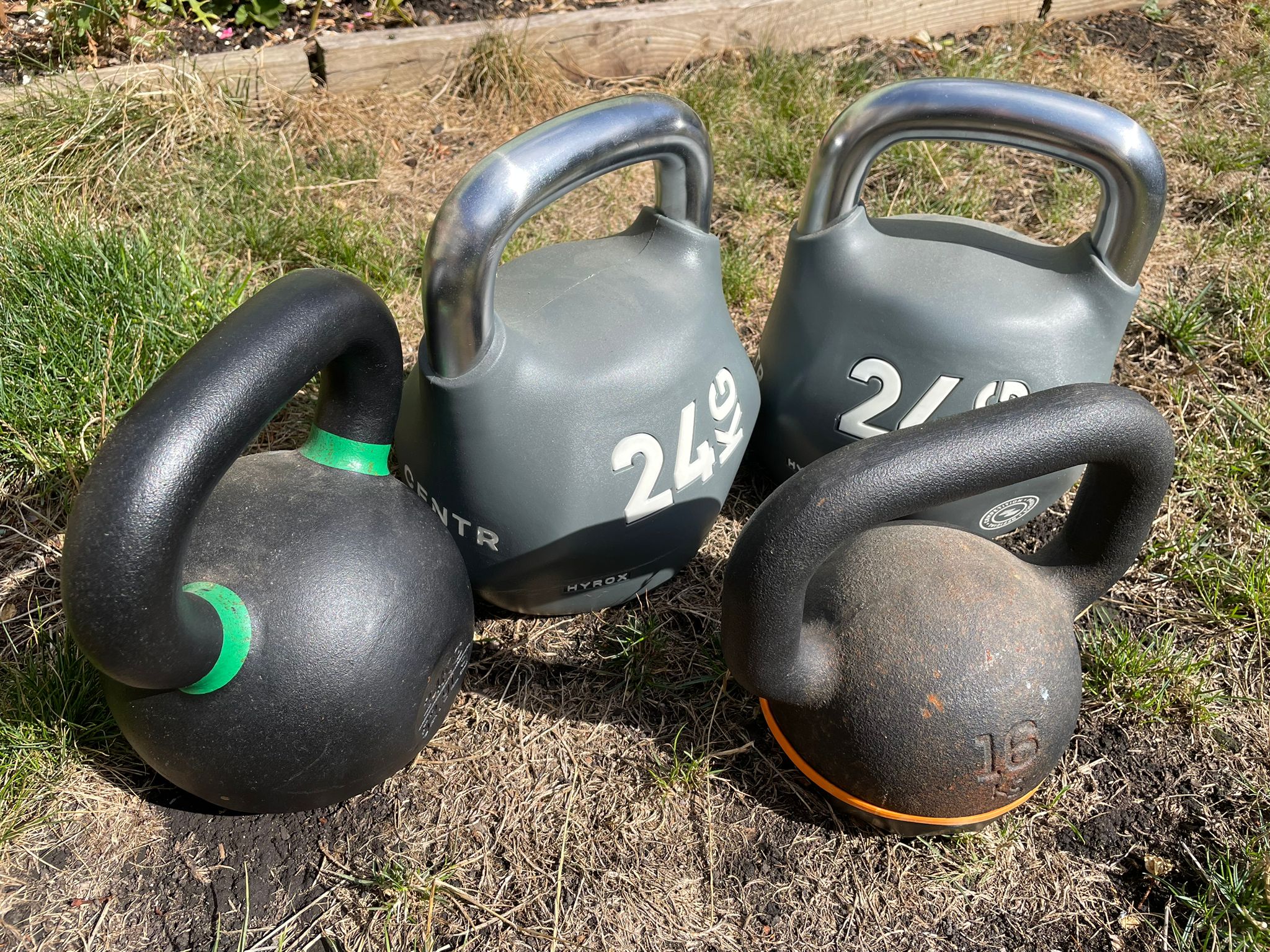
The IndyBest team is a collection of shopping experts, monitoring the latest product releases and discounts to help you find the best items at the best prices. Harry Bullmore is the team’s resident fitness expert, spending his weeks speaking to experts in the space and experimenting with a wide range of training techniques – from home workouts to Pilates to gymnastics. Not only has this given him a deep knowledge of the top fitness brands and products available on the market, but it also allows him plenty of opportunities to test new releases and innovations.
How I tested the best kettlebells
Kettlebells are versatile by nature, so I tested them in a range of ways. Firstly, I used each one for what coach Dan John calls “the best single kettlebell workout” – a challenging cocktail of kettlebell swings, goblet squats and press-ups. Next, I used them for a selection of strength and muscle-building exercises such as squats, deadlifts, rows and overhead presses. And finally, I tried using them for a variety of loaded carries.
Beyond this, I also incorporated them into my weekly workout routine, using them for everything from leg-strengthening front rack Bulgarian split squats to the mobility-boosting windmill exercise. After subjecting each kettlebell to this testing process, I scored it against the following criteria:
- Ergonomics: One of the biggest pulls of the kettlebell is its shape. The positioning of the handle, away from its centre of mass, makes it a great fit for power-focussed movements like the kettlebell swing, clean and snatch. It can also nestle in a front rack position, between the front of the shoulder and forearm, for squats and presses. Any kettlebell that was too bulky or oddly-shaped to fill these functions effectively did not make this list.
- Durability: The best kettlebells should last you a lifetime. JaxJox option aside, the ones that made this list survived sweaty outdoor workouts and being dropped several times.
- Grip: A kettlebell is useless if you can’t hold onto it. I looked for a grip which responded well to chalk, or was textured enough to provide a secure grip, without being so rough that it cause excessive discomfort.
The best kettlebells for 2025 are:
- Best overall – Wolverson competition kettlebells: £74.99, Wolverson-fitness.co.uk
- Best cast iron option – BLK BOX Cast iron kettlebell 2.0: £26.99, Blkboxfitness.com
- Best budget buy – Corength cast iron kettlebell: £29.99, Decathlon.co.uk
- Best for HYROX – Centr x HYROX competition octo kettlebell: £119.99, Centrfitness.co.uk
- Best for home workouts – Neoprene cast iron kettlebells: £19.39, Bodyrev.co.uk
1Wolverson competition kettlebells

- Best Overall
- Type Competition
- Weight options 4kg-32kg, rising in 4kg increments
- Why we love it
- Standardised size and shape
- Premium look and feel
- Grippy handle
- Take note
- Expensive
Competition kettlebells are a cut above the rest. They’re uniform in size, whatever their weight, so you won’t find the handle too small or the bell too wide when performing swings. They also have a durable steel construction, and they are colour-coded depending on the load, which is helpful.
This Wolverson one is a prime example. The standardised shape felt great for exercises like cleans, snatches and overhead presses, nestling nicely into a front rack position, and the bell itself felt bulletproof.
The retro Wolverson branding makes it look about as cool as a kettlebell can, and there are weight options from 4kg to 32kg to suit a wide variety of lifters.
2Corength cast iron kettlebell

- Best Budget buy
- Type Cast iron
- Weight options 4kg, 6kg, 8kg, 12kg, 16kg, 24kg
- Why we love it
- Good value for money
- Rubber base protects floors
- Robust design
- Take note
- Handle can feel too wide for swings on smaller bodies
While I firmly believe kettlebells represent immense value for money, the initial investment can sometimes sting. At £29.99 for a 12kg weight, this Decathlon is a steal from the get-go.
You don’t have to buy a 12kg one – there are weight options from 4kg to 24kg, with each featuring a rubber base to protect your floors and dampen any sounds on the ground, which flat-dwellers’ downstairs neighbours might appreciate.

The wide, rectangular handle can easily be gripped with both hands, and the weight felt nicely distributed for explosive exercises like snatches. The handle proved to be a little wide for smaller bodies when performing exercises like swings, where you need to fit the weight between your thighs, but that was my only cause for concern.
3BLK BOX cast iron kettlebell 2.0
.jpeg?quality=75&width=703&crop=3%3A2%2Csmart&trim=85%2C0%2C85%2C0&auto=webp)
- Best Cast iron option
- Type Cast iron
- Weight options 4kg-40kg, increasing in 4kg increments
- Why we love it
- Durable
- Wide range of colour-coded weight options
- Textured finish for good grip
- Take note
- Metal finish can mark some floors
I’ve owned my BLK BOX cast iron kettlebell for years, and I don’t think I’ll ever have to buy another one. It’s survived umpteen house moves, home workouts and even spells spent in a damp shed, all with negligible signs of wear and tear.

The shape is great for any kettlebell exercise, the powder coated handle offers solid grip and small colour-coded bands around the handle let you know the weight you’re lifting.
4Centr x HYROX competition octo kettlebell

- Best For HYROX fans
- Type Competition
- Weight options 8kg-32kg, increasing in 4kg increments
I like a traditional kettlebell, so I was a tad sceptical when Centr decided to reinvent the wheel with its angular Hyrox entry.
But when the company sent me a pair of its 24kg bells to try, I was happy to find the unconventional shape still fitted around my body just fine for staples such as double kettlebell cleans, front squats and goblet squats – only snatches felt slightly more cumbersome.

Like competition kettlebells, these free weights are uniform in size, and the build screams premium. The metal handles feel fantastic for farmer’s carries – à la HYROX – and there was barely a scuff on the weights after a series of intense workouts.
It is also a carbon copy of the kettlebell you will use during a HYROX race, if you’re really looking to fine-tune your final preparations for your next event. However, it is a steep price to pay for the authentic HYROX experience.
5Body Revolution neoprene cast iron kettlebells

- Best For home workouts
- Type Cast iron with neoprene coating
- Weight options 2kg-24kg, increasing in 2kg increments
- Why we love it
- Neoprene coating to protect floors
- Robust build
- Wide handle for double-handed exercises
- Take note
- shape of lighter weights doesn't fit well in front rack position
This kettlebell’s neoprene cover can protect both the bell and your floors, as well as dampening the noise when you dump it down – handy if you have wooden floors, or want to stay on speaking terms with a downstairs neighbour.
It didn’t leave any scuffs or dents in my home during testing, and the wide handle meant I could grip it comfortably for two-handed exercises like swings. The neoprene casing felt fairly robust too, while the cast iron innards are clearly built to last.
Lighter weight options manage to maintain the generous handle size fairly well, although the significantly smaller bells don’t fit brilliantly in a front rack position. But this was my only minor grumble.
6Pro Fitness 16kg kettlebell
.jpeg?quality=75&width=703&crop=3%3A2%2Csmart&trim=85%2C0%2C85%2C0&auto=webp)
- Best Budget cast iron option
- Type Cast iron
- Weight options 8kg, 10kg, 12kg, 16kg, 20kg, 24kg
- Why we love it
- Very robust
- Classic design
- Take note
- Glossy finish
- Lighter weights have smaller bodies
This classic cast iron kettlebell is built to stand the test of time, with solid ergonomics and a reasonable price tag if you can catch it in an Argos sale too. The metal bell may mark vinyl or wooden floors if you don’t use it with an exercise mat, but beyond that I had no complaints about its performance.
The handle offered good grip and plenty of room for double-handed exercises, and the shape was well-suited to swings and snatches as well as standard strength-boosting moves like bent-over rows.
I tend to opt for a matte finish rather than the glossy one Pro Fitness has plumped for, but that’s just a case of personal preference.
7Mirafit kettlebell set 2.5kg/5kg/7.5kg with stand

- Best For accessory work
- Type Plastic
- Weight options 2.5kg, 5kg, 7.5kg (all included in one set)
- Why we love it
- Light weights suitable for accessory work
- Three weight options and neat stand
- Take note
- Too light for many
This is a neat kettlebell set which can be useful for beginners or those looking to perform accessory exercises at home.
Accessory exercises are moves supplementary to the main lifts in your workout plan. They are often used to build robustness in a joint or target smaller muscle groups which may be underemphasised during straight strength-boosting exercises. Examples include include the kettlebell halo and bottoms-up kettlebell press, both intended to build strength and stability around the shoulder joint.

Given this set’s selection of lighter weight options, it is a good fit for beginners or those looking to supplement their gym workouts with a few at-home exercises. They are plastic but well made with a textured finish for improved grip, and the stand is a neat touch too.
However, if you want to use them for the meat and drink of your workouts – squats, swings and the like – you will soon find yourself needing a heavier kettlebell to provide a sufficient challenge.
8Reebok 4kg kettlebell
.jpeg?quality=75&width=703&crop=3%3A2%2Csmart&trim=85%2C0%2C85%2C0&auto=webp)
- Best For durability
- Type Cast iron with vinyl coating
- Weight options 4kg, 6kg, 8kg
This diminutive kettlebell only comes in 4kg, 6kg and 8kg weight options, so it’s not one for those who like lifting heavy. But if you’re after a lighter kettlebell for introducing yourself to kettlebell training, it does a lot right.
The cast iron body is robust, and it has a dipped vinyl coating to prevent the kettlebell scuffing or marking hard floors. The handle is surprisingly wide for a lighter weight, allowing me to easily hold it with both hands, and the small body makes it easy to store away.
The weights aren’t uniform in size like a competition kettlebell, so the small bells feel a bit awkward in a front rack position. But it worked well for exercises where I was only holding it by the horns, such as the goblet squat.
9Jaxjox kettlebell connect

- Best For resistance training
- Type Adjustable
- Weight options 5.5kg, 8.5kg, 11kg, 13.5kg, 16.5kg or 19kg (all in one set)
This smart cookie packs six kettlebells into one compact package. The exterior is hollow, weighing roughly 5.5kg, then the interior houses a stack of 3kg weights which can be attached or unattached at the touch of a button on its docking tray. This means you can choose a load of 5.5kg, 8.5kg, 11kg, 13.5kg, 16.5kg or 19kg to suit the exercise you’re doing.
I found this was a good fit for standard resistance training exercises like rows and deadlifts, where I was holding the kettlebell by its handles. However, the large, long shape proved to be a bit cumbersome for dynamic moves like cleans and swings, as well as anything involving the front rack position like an overhead press.
The kettlebell launched for £249.99, in tandem with an app capable of tracking your reps and providing follow-along workouts. But, with the demise of the app, you can now pick the product up at Amazon for a fraction of this original price – it still functions just fine as an adjustable kettlebell.
What is the best kettlebell?
If you’re looking for a quality kettlebell that will last a lifetime, Wolverson’s competition kettlebell is in a league of their own. It’s a premium product with a surprisingly appealing retro aesthetic, but this does ramp up the cost.
If you’re after something more affordable while still offering excellent quality, a cast iron kettlebell is your best bet, and the bombproof BLK BOX cast iron kettlebell 2.0 is my pick of the bunch.
Cheaper again, the similarly robust Domyos kettlebell has several weight options at excellent prices, only falling behind the options above due to its square handle. Or, for beginners, the MiraFit kettlebell set offers three lighter weight options to help you get to grips with kettlebell training.
Kettlebell FAQs
How to use kettlebells for beginners

Dan John is one of the world’s best-respected kettlebell coaches, and he believes most people can go a long way with just three foundational kettlebell exercises: the kettlebell swing, goblet squat and Turkish get-up. If you’re a beginner, you can swap the Turkish get-up for a press-up at first, as it can take a little while to learn the technique for this more technical move.
He also supports the concept of a minimum effective dose – the smallest amount of work you can do to achieve your desired goals, which in this case are improving strength and fitness. For the below exercises, he says the doses for most people are roughly 75-125 kettlebell swings, 15-25 goblet squats and 1-10 Turkish get-ups on each side of the body (or 15-25 press-ups) per workout.
- Goblet squat: Stand with your feet roughly shoulder-width apart and your toes pointed slightly outward, holding a kettlebell tight to your chest with both hands. Keeping your chest up, push your hips back as if you were sitting down on a chair, then bend your knees to lower your hips towards the floor. Once your hip crease is lower than your knee, drive through your feet to return to the starting position.
- Kettlebell swing: Assume a wide stance with your feet either side of a kettlebell on the ground in front of you. Keeping your spine long, hinge at the hips to bend over and grab the kettlebell with both hands using an overhand grip. With straight arms throughout, draw the kettlebell up and back between your thighs, then squeeze your glutes to powerfully send the kettlebell forward. When it reaches its apex, allow it to arc back between your thighs and repeat.
- Turkish get-up: Lie on your back holding a kettlebell in your right hand with your arm extended towards the ceiling. Bend your right leg so your knee is pointing upwards and your foot is planted on the ground, toes forward. Sit up so you can prop yourself up on your left elbow, then raise your torso further so you can support yourself with your left arm straight, palm on the floor. Bring your left knee under your body to come into a lunge position, then stand up. Reverse this sequence to complete the repetition, then repeat on the other side.
- Press-up: Start in a high plank position, with your weight spread between your toes and your hands. Your hands should be roughly under your shoulders, and your body should form a straight line from the back of your head to your heels. Keeping your core tight and your elbows tucked into your sides, bend your elbows to lower your chest towards the floor. When your toros is a couple of centimetres from the ground, push through your hands to return to the starting position. You can lower your knees or elevate your hands to make this exercise easier.
Weight
For strength training to be effective, you have to use a weight that isn’t so heavy that it forces your form to falter, but is heavy enough to challenge your body. A good litmus test for this is to find a weight you can press overhead 10 times. This should provide you with a mid-weight kettlebell you can use for a wide range of workouts.
Types of kettlebell
There are four main types of kettlebell, and each one has its ideal owner. I’ve done my best to outine these below:
- Competition kettlebell: These free weights are for those who take their training seriously. Whatever the weight, they’re uniform in size and shape for consistent ergonomics. The wide, boxy handles offer plenty of room for a double-handed grasp, and the metal finish responds well to chalk for extra grip. They’re also colour-coded depending on their weight, although their quality craftsmanship usually comes at a price.
- Cast iron kettlebell: This is the best type of kettlebell for most people because its seamless design is simple, robust and effective – I’ve had mine for years, and plan to use it for many more to come. The size will differ depending on the weight (the larger the bell, the heavier it is) and the handle might not be as grippy as a competition kettlebell. But these options tend to be cheaper, and can come with a rubber covering to protect your floor from scuffs.
- Vinyl kettlebell: This is a good option for beginners. The plastic finish feels cheap, and they can often be filled with sand rather than metal, but that does cut the cost significantly. They only tend to come in lighter weight options, and ones I’ve tried in the past have had larger bells that can be cumbersome for some exercises. But they won’t mark your floors and can be more forgiving than metal alternatives when making contact with your wrists and shoulders.
- Adjustable kettlebell: This is a new addition on the scene. Adjustable kettlebells tend to have plates or weighted pucks which can be attched or removed from a central bell to change the weight. This is great for strength-boosting exercises, although they’re odd shape and less secure feel means I’d rather have a classic kettlebell for explosive exercises and high-intensity workouts.
For more products to upgrade your fitness gear, read our round-up of the 8 best yoga mats perfect for using at home or in the gym


.jpeg?quality=75&width=156&crop=3%3A2%2Csmart&trim=85%2C0%2C85%2C0&auto=webp)


.jpeg?quality=75&width=156&crop=3%3A2%2Csmart&trim=85%2C0%2C85%2C0&auto=webp)
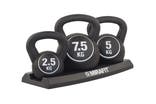
.jpeg?quality=75&width=156&crop=3%3A2%2Csmart&trim=85%2C0%2C85%2C0&auto=webp)

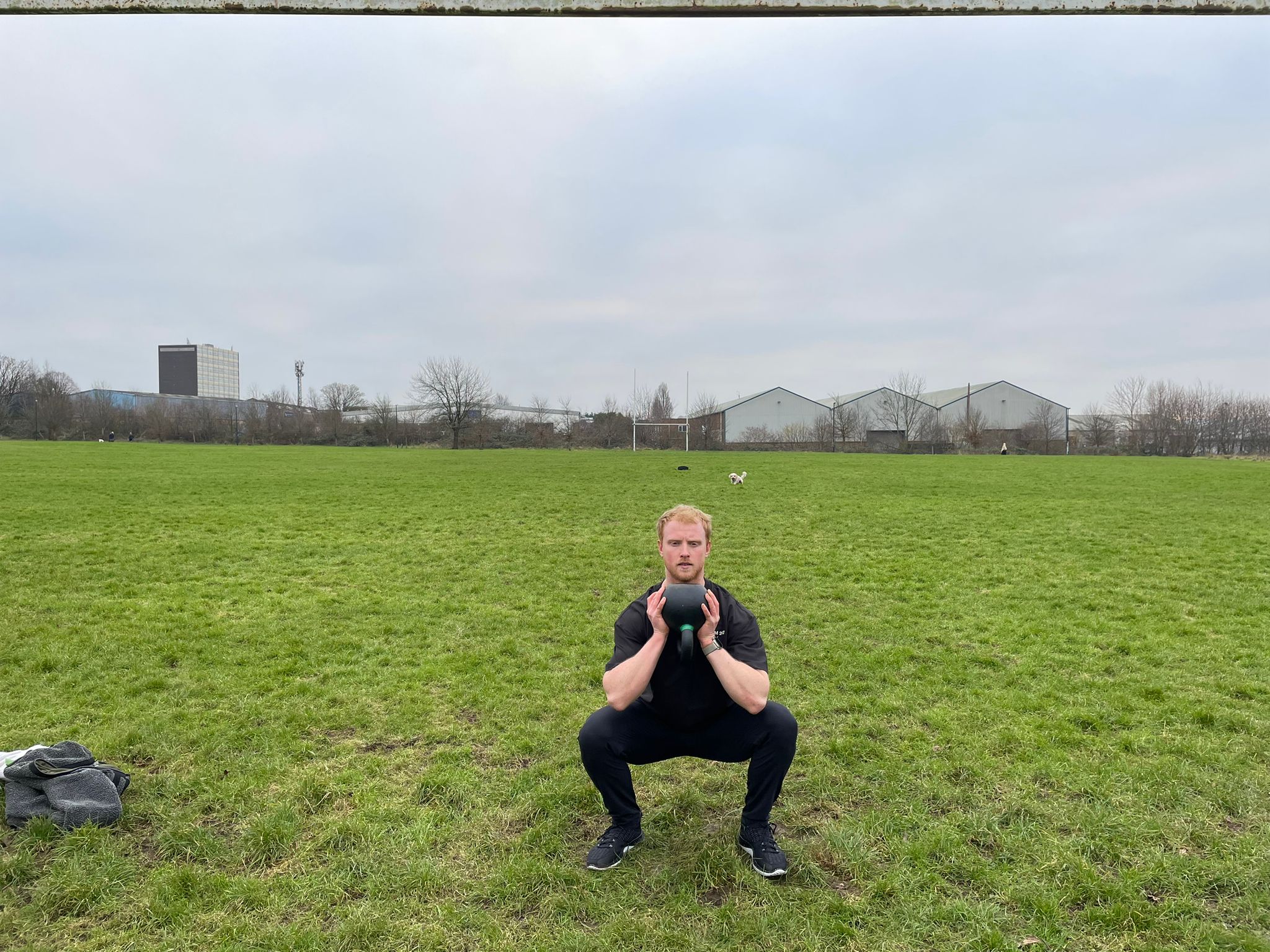
-png-crdownload.png)

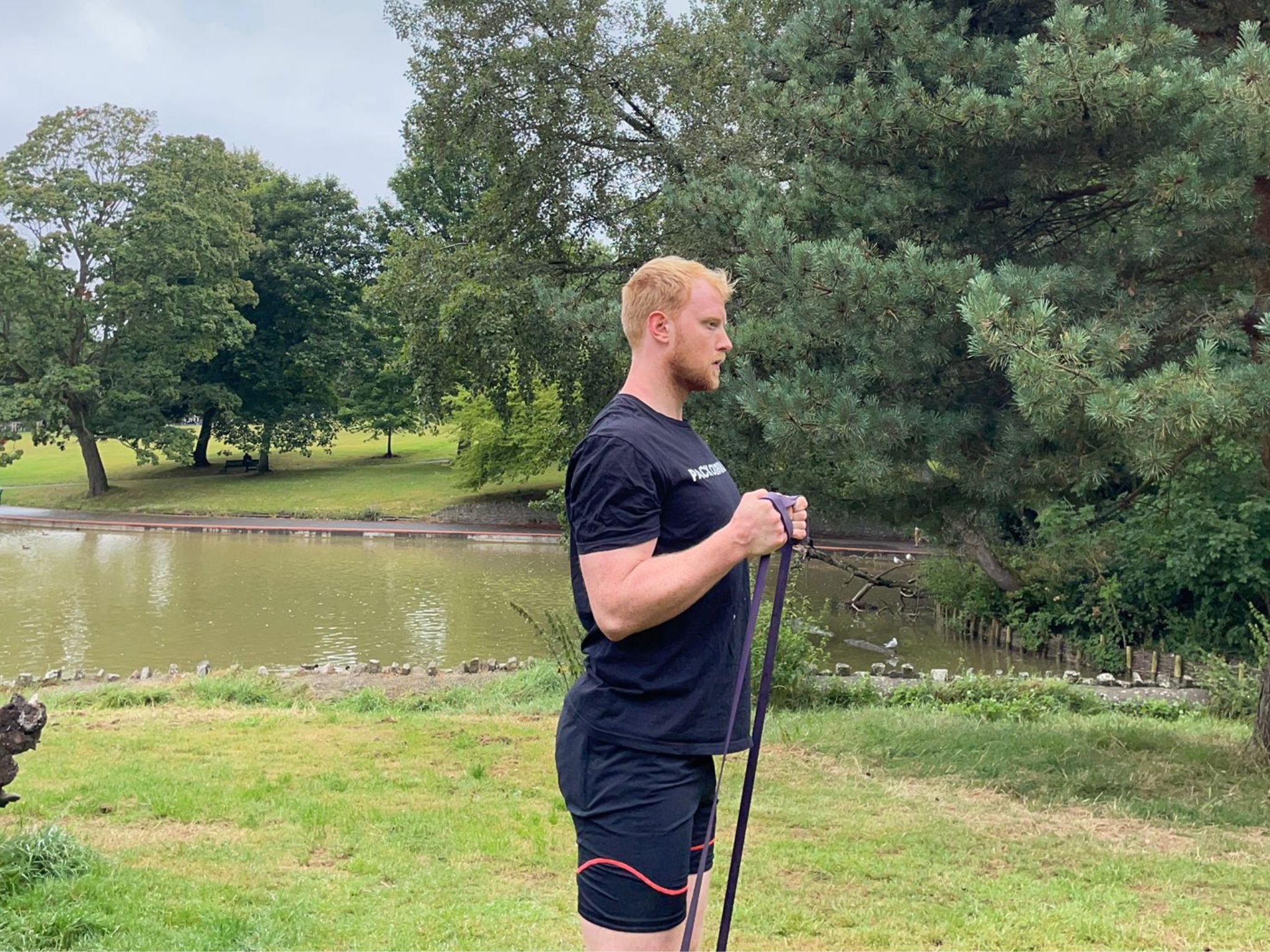
Bookmark popover
Removed from bookmarks